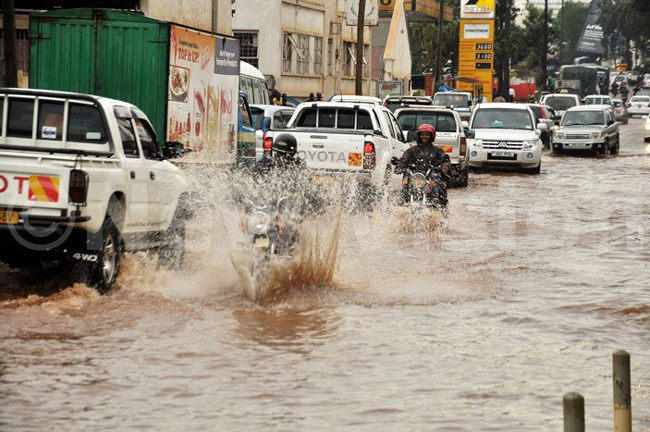Floods: Water management is about planning
The flooding problem isn’t all about drainage channels, but a complete city setup and land use pattern, based on a plan.
OPINION

By Amanda Ngabirano
Floods, in a case like ours, are about water management. Water management is about planning. Planners and the general public are aware of what happens if drainage isn't well managed and sufficiently planned for.
It is not a secret.
I think this news is becoming a part of the drainage problems, because every other rainy season, we get to hear more about foods but do nothing fundamental as we wait for the rainy season to end and it all becomes business as usual. This is sad.
The 'business as usual' business is becoming part of our culture, which is definitely detrimental to the city functionality, national image and the general quality of life. Whereas we believe in God, we shouldn't expect some miracles. If we don't plan, we plan to fail. We have failed with water and flooding in Kampala.
The environment has been heavily damaged in a sense that the water catchment areas aren't available anymore for their ecological role.
We have chosen to settle, and actually, permitted/normalised settlements and developments in wetlands; housing, businesses and even industries in and around these areas. We also have a bad culture of disposing of garbage.
We actually do not render maintenance as part of the planning process and investment.

Our city developments seem good, but quite unco-ordinated and not comprehensive enough. We must invest in a comprehensive master plan for the city, prioritise its implementation, and get rid of some structural developments in some environmentally sensitive areas.
Whereas I am aware of the fronted economic and social reasons behind this dangerous 'business as usual', we have to take bold decisions now or face the reality of cheating nature; who is simply ready for death and total property destruction every other rainy season?
The master plan will address the locational problem, land use suitability and compatibility issues.
It will also serve as a communication tool about individual locational choices. This is entirely a public sector role; because it is about planning for the public interest. Even if our population still requires sensitisation and attitude change, it is the public sector expected to initiate such programmes, which should run over a long period of time.
In the short term, let's stop permitting or choosing settlements/developments in water catchment areas. This is a worthwhile investment, but it shouldn't be about drainage channels.
The flooding problem isn't all about drainage channels, but a complete city setup and land use pattern, based on a plan.
It is simply a symptom of lack of planning over a long period of time; just like the traffic problem, increasing dangerous informality, deteriorating air quality, and quality of public spaces, disappearance of public parks and road accidents, among other key urban development aspects.
ALSO RELATED TO THIS ARTICLE
How to eradicate flooding on Kampala roads
How Banda gangs rob during floods
Heavy rains batter parts of Kampala